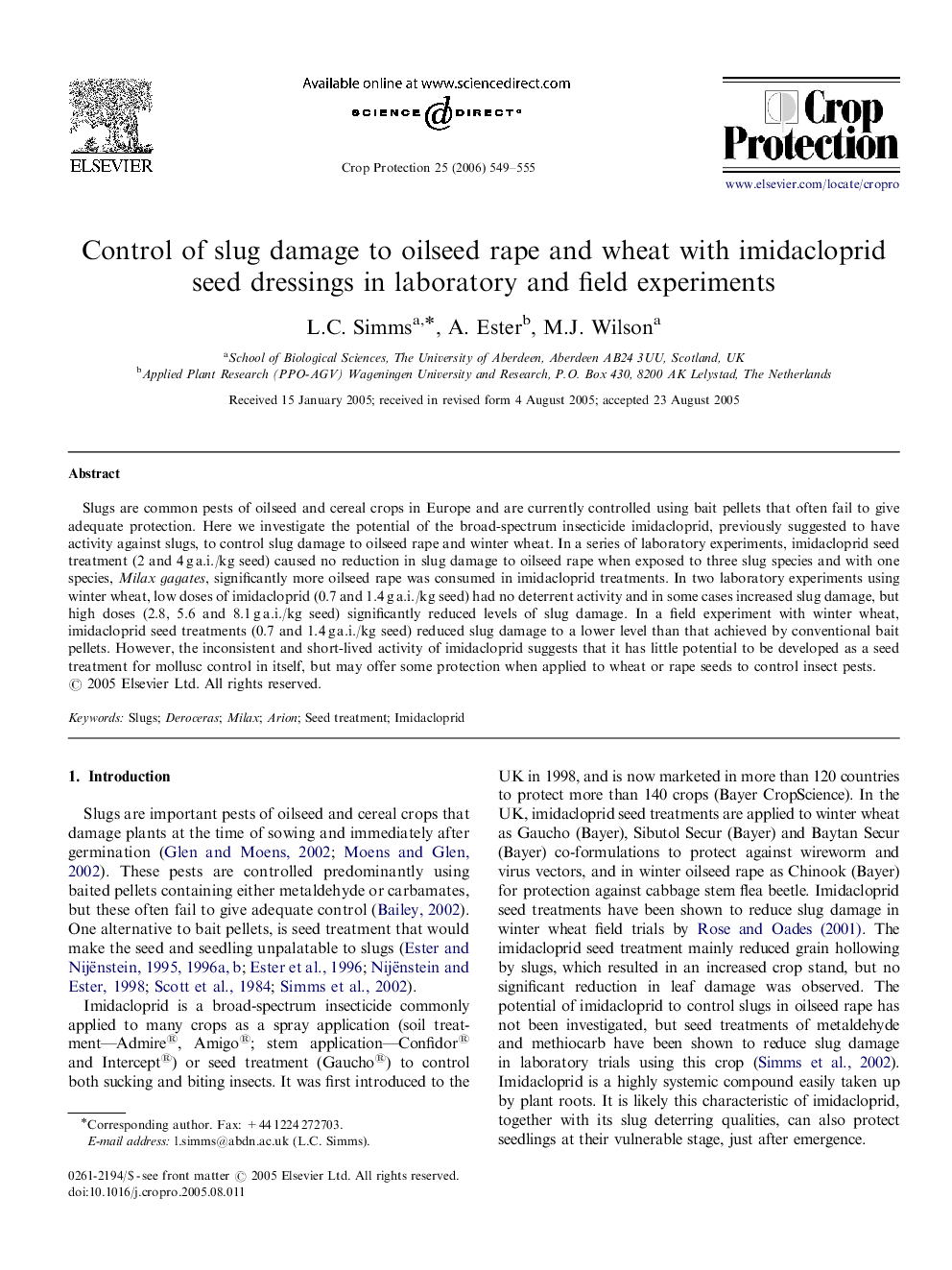| Article ID | Journal | Published Year | Pages | File Type |
|---|---|---|---|---|
| 4508103 | Crop Protection | 2006 | 7 Pages |
Slugs are common pests of oilseed and cereal crops in Europe and are currently controlled using bait pellets that often fail to give adequate protection. Here we investigate the potential of the broad-spectrum insecticide imidacloprid, previously suggested to have activity against slugs, to control slug damage to oilseed rape and winter wheat. In a series of laboratory experiments, imidacloprid seed treatment (2 and 4 g a.i./kg seed) caused no reduction in slug damage to oilseed rape when exposed to three slug species and with one species, Milax gagates, significantly more oilseed rape was consumed in imidacloprid treatments. In two laboratory experiments using winter wheat, low doses of imidacloprid (0.7 and 1.4 g a.i./kg seed) had no deterrent activity and in some cases increased slug damage, but high doses (2.8, 5.6 and 8.1 g a.i./kg seed) significantly reduced levels of slug damage. In a field experiment with winter wheat, imidacloprid seed treatments (0.7 and 1.4 g a.i./kg seed) reduced slug damage to a lower level than that achieved by conventional bait pellets. However, the inconsistent and short-lived activity of imidacloprid suggests that it has little potential to be developed as a seed treatment for mollusc control in itself, but may offer some protection when applied to wheat or rape seeds to control insect pests.
